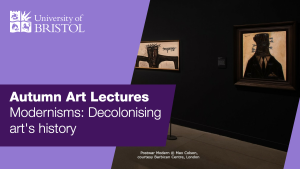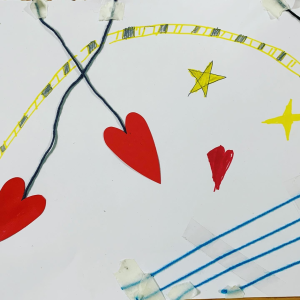From digital inclusion to digital literacies
Associate Professor Ed King tells us about his latest project to develop a science-fiction videogame to raise awareness of the dangers of social media disinformation in Brazil. To do this, he’s been working with local Brazilian organisations. It is an example of how arts research can address societal challenges. The project has recently received an AHRC Impact Acceleration Account award.
With help from the AHRC Impact Acceleration Account, I am currently collaborating with artists and non-profit organisations in Brazil to develop a videogame which will improve digital literacies. Our videogame will raise awareness about the dangers of disinformation by providing them with an accessible, engaging, free and enjoyable educational resource which will encourage young people to think critically about these issues through the medium of digital play.
In the early 2000s, during the first administration of the left-wing Worker’s Party President Lula da Silva, the Brazilian government invested heavily in ‘digital inclusion’ initiatives as a way of reducing social inequalities in the country. The ‘Pontos de Cultura’ project, for example, which funded media centres based in community spaces across the country, including in favelas and socially deprived neighbourhoods, became a model for approaches to free software among policy makers in Europe and North America.

However, now that there are extremely high levels of smartphone ownership and social media usage in Brazil, it has become clear that access to digital networks is not a guarantee of social inclusion but can entail exposure to manipulation and data surveillance. As a result, the focus among governmental and non-profit organisations working in this area has shifted from increasing digital inclusion to supporting digital literacies across the social spectrum.
Why is this research important?
Through my research, it has become evident that a digital literacy skill in need of particularly urgent support is the identification of disinformation online. This emerged as an important issue during the last presidential elections in Brazil in 2018 and was cited by many reports as a key factor in the rise to power of far-right president Jair Bolsonaro (who is seeking re-election in October 2022). It was also an important factor in the consolidation of cultures of denial during the COVID-19 pandemic. Since then, government and non-governmental organisations (such as Global Network Initiative and Direitos na Rede) have been attempting to tackle the issue at the levels of policy and law, including through the regulation of content.
Over the last few years, I have been working with a network of organisations that have been working with communities across Brazil to develop digital literacies as a way of expanding social inclusion.
- In 2020-21, with support from an ESRC-IAA grant, I collaborated with the Ubatuba-based Instituto Neos to produce the ID21 report, which provides a survey of the major challenges facing these organisations.
- With funding from a Bristol Digital Futures Seed Corn grant and the Participatory Research Fund, we used this report as the basis for developing an online repository of educational resources to be used in constructing new community digital inclusion initiatives and policies.

What does the research project involve?
Our project aims to support those organisations looking to tackle disinformation at the level of its reception, particularly among marginalised communities. ‘Futuro Chama’ is a videogame that uses a science fiction plot to encourage young people to think critically about the spread of disinformation through social media. It was developed in collaboration with a group of digital artists led by Rafael Coutinho and members of non-profit organisations based across Brazil that contributed to the ID21 report. These include: Instituto Neos (Ubatuba); Instituto Procomum (Santos); Coletivo Digital (São Paulo); Casa de Cultura Tainã (Campinas); and Associação Thydewá (Olivença).
We developed a prototype of the game with ESRC-IAA funding and have recently received AHRC-IAA ‘Proof of Concept’ funding to complete the game’s development and carry out beta testing. We will also start looking for potential users of the game beyond Brazil. This will involve translating the game into English and approaching organisations that support creative technological approaches to the challenges of democratisation.
Who will the game’s initial users be?
The first users will be the same organisations that contributed to the ID21 report and collaborated in the development of the game. They will use ‘Futuro Chama’ during the digital literacy workshops they run to support the development of digital literacies among marginalised communities. However, we will also distribute the game more widely through the same social media networks that the game critically engages. The aim here will be to raise public awareness of the dangers of misinformation, particularly in a context of social upheaval such as the current political crisis in Brazil.


 Our theme this year coincides with Bristol’s Festival of Ideas 2022, titled Modernism 1922, which looks to the legacies of that remarkable year – from the publication of James Joyce’s Ulysses and T S Elliot’s The Waste Land to the famous Bauhaus exhibition in Calcutta (now Kolkata). A tribute to Kevin Jackson’s book, Constellation of Genius: 1922: Modernism and All That Jazz, the Festival explores 1922 via film screenings, discussions and new commissions.
Our theme this year coincides with Bristol’s Festival of Ideas 2022, titled Modernism 1922, which looks to the legacies of that remarkable year – from the publication of James Joyce’s Ulysses and T S Elliot’s The Waste Land to the famous Bauhaus exhibition in Calcutta (now Kolkata). A tribute to Kevin Jackson’s book, Constellation of Genius: 1922: Modernism and All That Jazz, the Festival explores 1922 via film screenings, discussions and new commissions.

